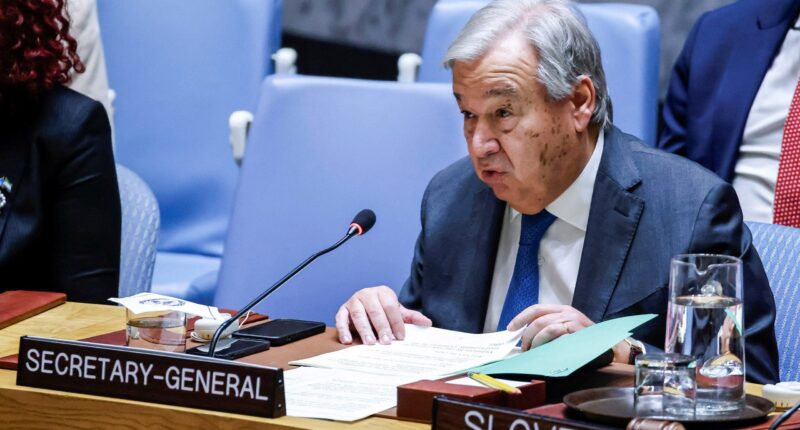Several countries gathered at the United Nations (U.N.) recently to address a long-standing issue: the absence of regulations concerning lethal autonomous weapons systems (LAWS), commonly known as “killer robots.” The international community has been deliberating on this matter for more than ten years.
This latest round of talks comes as wars rage in Ukraine and Gaza.
Although the discussion took place in private, U.N. Secretary-General António Guterres affirmed his previous stance on setting a deadline of 2026 for implementing a legally binding solution to the risks associated with LAWS.
In a released statement, Guterres emphasized his strong stance against machines that have the capability to make life-and-death decisions without human intervention. He expressed that such technology is both politically intolerable and ethically unacceptable. Guterres reiterated the urgency of prohibiting these autonomous systems through international law, stating, “We cannot delegate life-or-death decisions to machines.”

United Nations Secretary-General António Guterres speaks during a Security Council meeting during the 79th United Nations General Assembly at U.N. headquarters in New York City on Sept. 27, 2024. (Reuters/Eduardo Munoz)
Artificial intelligence is not necessarily a prerequisite for something to be considered an autonomous weapon, according to the U.N., as not all autonomous systems fully rely on AI. Some can use pre-programmed functions for certain tasks. However, AI “could further enable” autonomous weapons systems, the U.N. said.
Vice President of the Conservative Partnership Institute Rachel Bovard, however, says that while regulation of autonomous weapons is necessary, the U.S. needs to be cautious when it comes to the development of international law.
“AI is the wild west and every country is trying to determine the rules of the road. Some regulation will be imperative to preserving our humanity. When it comes to international law, however, the U.S. should proceed with caution,” Bovard told Fox News Digital. “As we have learned with everything from trade to health, subjecting our national sovereignty to international dictates can have lasting unintended consequences. If existing international law is sufficient at the moment, that is what should govern.”

Palestinian President Mahmoud Abbas addresses the 79th session of the United Nations General Assembly on Thursday, Sept. 26, 2024 at U.N. headquarters. (AP Photo/Frank Franklin II)
Countries in the Convention on Certain Conventional Weapons have been meeting since 2014 to discuss a possible full ban on LAWS that operate without human control and to regulate those with more human involvement, according to Reuters.
In 2023, more than 160 nations backed a U.N. resolution calling on countries across the globe to address the risks posed by LAWS. However, there is currently no international law specifically regulating LAWS.

















